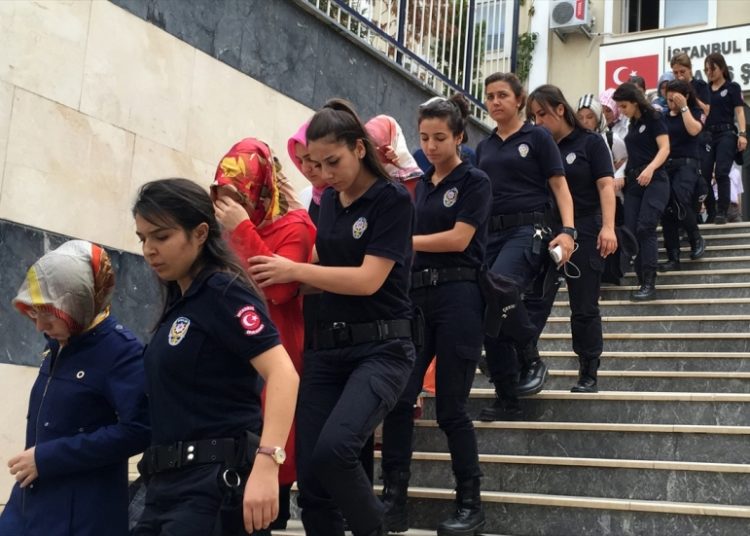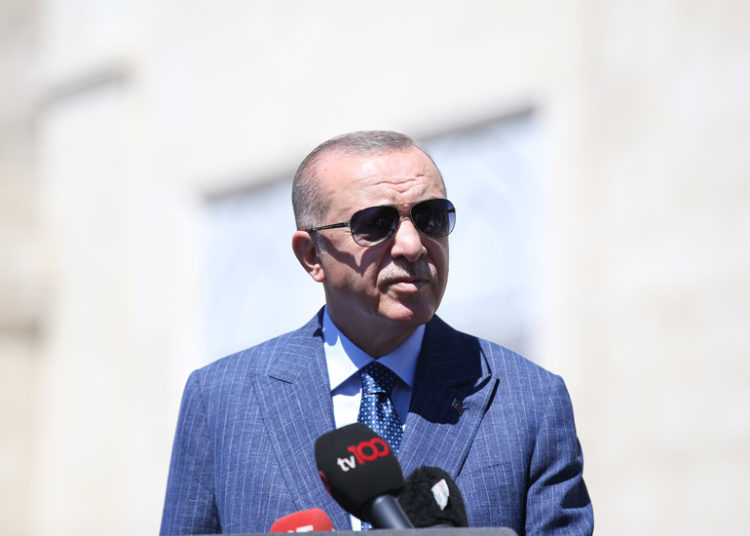Nordic Monitor
Turkish diplomatic missions in Baltic countries engaged in a campaign of intelligence gathering and collected information on the activities of critics of Turkish President Recep Tayyip Erdoğan, judicial documents have revealed.
The information collected by the embassies in Estonia, Latvia and Lithuania were later used in criminal indictments of critics including Turkish educators, academics, businessmen and representatives of NGOs on charges of terrorism by a Turkish prosecutor.
According to separate decisions by prosecutor Adem Akıncı, the Ankara Chief Public Prosecutor’s Office launched three investigations into Turkish nationals living in Estonia (file no. 2018/229567 dated December 20), Latvia (file no. 2018/230829 dated December 21) and Lithuania (file no. 2018/231181 dated December 24) without any concrete evidence of wrongdoing. They were charged with “membership in a terrorist group” by Akıncı.
As a result of a massive purge, the Turkish judiciary, intelligence services, diplomatic missions abroad and law enforcement authorities have become abusive tools in the hands of the Islamist government of President Erdoğan to prosecute critics, opponents and dissidents. The criminal justice system has often been abused by Erdoğan to persecute government critics, leading to the imprisonment of tens of thousands on false charges.
Judicial documents exposed how the spying activities of the Turkish embassies in Tallinn, Riga and Vilnius triggered criminal investigations in Turkey. (The names and addresses of the Turkish nationals have been redacted for security reasons.):
Critics of the Erdoğan government abroad, especially members of the Hizmet/Gülen movement, which is a group critical of President Erdoğan, have been facing surveillance, harassment, death threats and abductions since Erdoğan decided to scapegoat the group for his own legal troubles. Turkish diplomatic and consular missions around the world have systematically spied on critics of the president, profiled their organizations and listed their names as if they were part of a terrorist organization.
It is clear that Turkish diplomatic missions violate the domestic laws of receiving states and the principles of international law by conducting unlawful information-gathering campaigns and sweeping intelligence operations. Erdoğan’s envoys enjoyed the privileges and immunities described in the international conventions while they systematically spied on critics of the president, collected information on Turks living abroad and transmitted it to headquarters. Those documents exposed clandestine spying activities in Baltic region territory that targeted critics as part of President Erdoğan’s long arm.

In February Foreign Minister Mevlüt Çavuşoğlu confirmed clandestine spying operations by Turkish diplomats on foreign soil. Çavuşoğlu said Turkish diplomats assigned to embassies and consulates have officially been instructed by the government to conduct such activities abroad. “If you look at the definition of a diplomat, it is clear. … Intelligence gathering is the duty of diplomats,” Çavuşoğlu told Turkish journalists on February 16, 2020 following the Munich Security Conference, adding, “Intelligence gathering and information collection are a fact.”
In his interview with The Globe and Mail, Turkish Ambassador to Canada Kerim Uras also admitted to spying on 15 Turkish-Canadians. “Any embassy would focus on the threats targeting their countries. That’s what every embassy does,” he told The Globe and Mail.
Turkish Ambassador to Uganda Kerem Alp spoke to the state-run Anadolu news agency in March and confirmed that Turkish diplomats collect information on the business activities of Erdoğan critics living abroad and profile their companies as if they were part of a terrorist organization. Alp also revealed how the embassy was gathering information on medical staff, educators and humanitarian volunteers working for Ugandan institutions.
“There were some FETO followers who had sought to hide in Uganda and were working in schools or hospitals. … They have been disguising themselves as humanitarian workers,” he told the news agency. FETO is a derogatory term coined by the Turkish government to refer to the movement.
The Turkish government has also benefited from the pro-Erdoğan networks and organizations of the Turkish diaspora. In the last couple of years Turkish diaspora associations have been accused of acting as the long arm of the Erdoğan regime in Europe, and some of them have been put under surveillance by local intelligence agencies. After a coup attempt in 2016, some European countries launched investigations into Turkish imams linked to Turkey’s Religious Affairs Directorate (Diyanet), an ideological and political state apparatus tasked with spreading Erdoğan’s political Islamist ideology both inside and outside the country.

The recent judicial documents once more confirmed that spying activities by Turkish diplomatic missions result in serious consequences in the Turkish judicial system.
As previously disclosed by Nordic Monitor, the foreign ministry sent lists of profiled Turkish nationals in two CDs to the Ankara Chief Public Prosecutor’s Office, the national police and Turkey’s intelligence agency MIT on February 19, 2018 via an official document for further administrative or legal action, the punishment of their relatives back in Turkey and the seizure of their assets.
Public prosecutor Akıncı, who received the foreign ministry document on February 23, 2018, forwarded the classified CDs including information on 4,386 Erdoğan critics to the Organized Crimes Unit of the Ankara Police Department for further action. The police conveyed the results of its investigations to the public prosecutor.
According to judicial documents released by the Ankara 4th High Criminal Court on January 16, 2019, the foreign ministry compiled a long list of foreign entities that were owned and/or operated by people who were seen as close to the movement.
Moreover, Nordic Monitor revealed how MIT infiltrated refugee camps in Greece in order to spy on opponents who were forced to flee to Greece to escape an unprecedented crackdown in neighboring Turkey.












